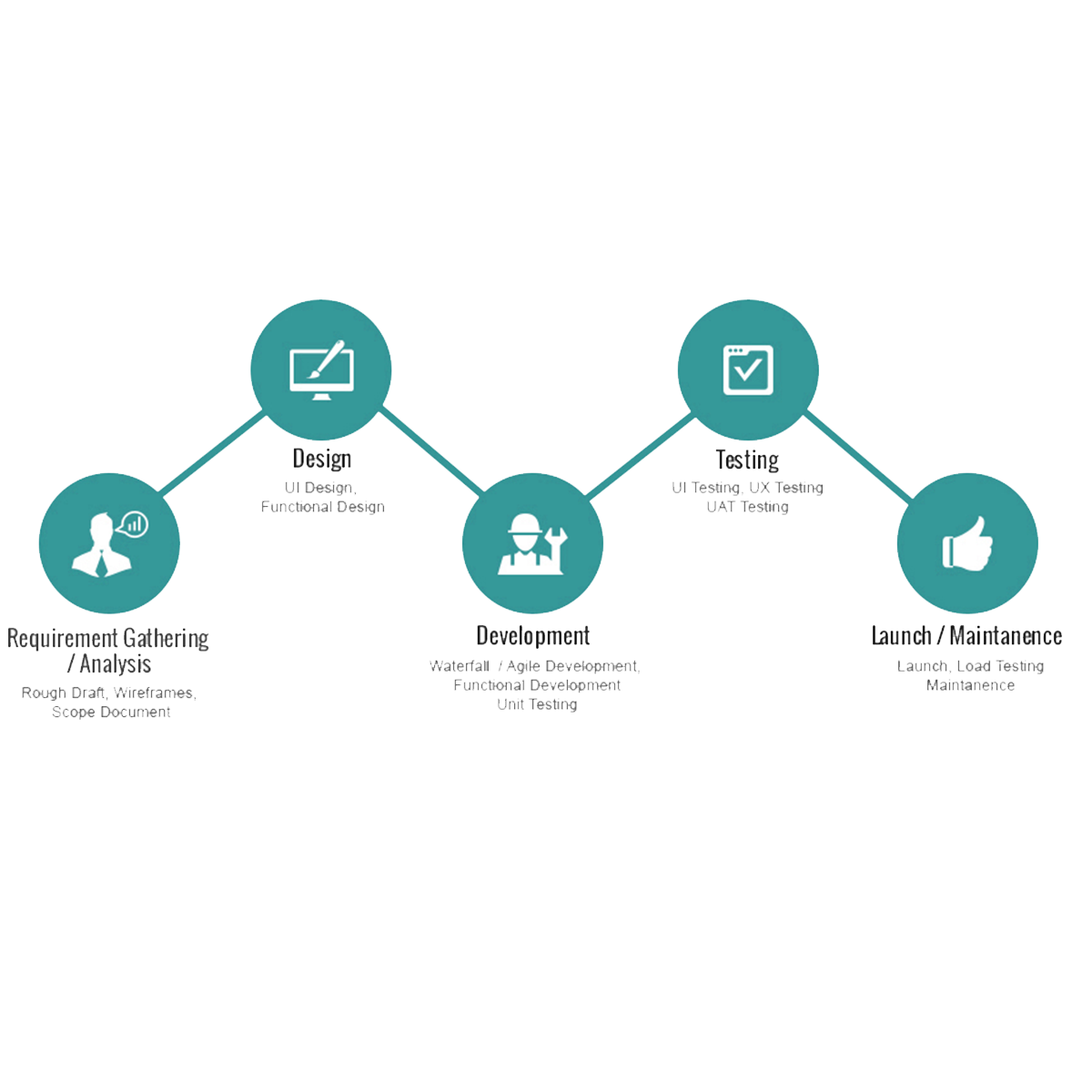Why Choose Us for Mobile App Development?
Tailored Solutions: We understand that every business is unique. Our team designs and develops custom mobile apps that meet your specific goals and target audience, whether for e-commerce, enterprise, or other industries.
Expert Development Team: Our skilled developers use the latest technologies to build reliable, high-performance apps. We create native iOS and Android apps and cross-platform solutions that work across all devices.
User-Friendly Design: We focus on creating intuitive, visually appealing apps that are easy to navigate, ensuring an excellent user experience.
Scalable & Secure Apps: We build apps that grow with your business, ensuring scalability and top-notch security for user data.

Our Process
Consultation & Strategy: We begin by understanding your goals and audience to define the app's features and functionality.
Design & Development: Our team creates a user-friendly design and develops the app using the latest technologies.
Quality Testing: We test the app for bugs, security, and performance, ensuring it works seamlessly on all devices.
Launch & Deployment: We handle the app's deployment to the App Store or Google Play and help optimize it for visibility.
Ongoing Support & Maintenance: We provide continuous support and updates to keep your app running smoothly.

Why Thavertech is the Best Mobile App Development Company in Delhi NCR?
Experienced Team: Proven expertise in delivering custom mobile apps across various industries.
Tailored Solutions: We focus on your unique business needs and goals.
CTimely Delivery & Support: We ensure timely project delivery and provide ongoing support to keep your app up-to-date.

Ready to Build Your Mobile App?
Are you looking for a reliable mobile app development company in Delhi NCR? Contact Thavertech today, and let's build an app that enhances your business and delights your users!
FAQ
-
What types of mobile apps does Thavertech develop?
Thavertech develops custom mobile apps for Android, iOS, and cross-platform solutions. Whether you need a native app for a specific platform or a cross-platform app that works seamlessly across devices, our team has the expertise to create high-performance, scalable, and secure apps tailored to your business needs.
-
How long does it take to develop a mobile app?
The timeline for mobile app development depends on the complexity and scope of the project. We provide a detailed timeline after understanding your requirements during the consultation phase. We ensure timely delivery without compromising quality and keep you updated throughout the development process.
-
Can Thavertech help with app design as well as development?
Yes! We offer complete end-to-end services, including app design and development. Our design team focuses on creating visually appealing, user-friendly interfaces that enhance user experience. We combine great design with powerful functionality to ensure your app meets your business objectives.
-
Will my app be secure?
Security is a top priority at Thavertech. We implement the latest security protocols to protect your app and user data. Our development process includes secure coding practices, data encryption, and regular security testing to ensure your app is safe from vulnerabilities.
-
What kind of support do you provide after the app is launched?
Thavertech offers ongoing support and maintenance after your app is deployed. We monitor your app's performance, provide updates, fix bugs, and ensure compatibility with the latest operating systems. Our team is always available to help with any questions or issues that may arise post-launch.